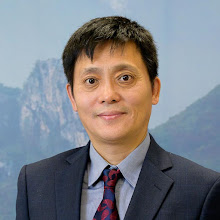Tiejun Tang
Today is the World Parkinson's Day. 11th April is the birthday of Dr. James Parkinson. He is the first physician to recognize Parkinson’s as a medical condition. He was born and practiced in London as a surgeon. In the UK this week is the Parkinson’s disease awareness week. It is observed annually in the UK to raise awareness about the disease and support those affected by it. Parkinson's disease (PD) is a progressive neurodegenerative disorder that affects movement, causing tremors, stiffness, and difficulty with balance and coordination.
Over the past generation, the number of individuals with PD globally has more than doubled to over 6 million. In all the neurological disorders included in Global Burden of Disease (GBD) 2015, PD was the fastest growing[1,2].
Modern medicine offers several treatments for PD, including medication, surgery, and deep brain stimulation. The currently available treatment methods are all symptomatic ones and caused some side effects. No treatment has been proven to slow the progression of PD[3].
Traditional Chinese medicine believes that PD is mainly caused by deficiency of liver and kidney yin in the early stage; in the middle stage, it is mainly caused by wind phlegm and blood stasis; in the later stage, deficiency of both yin and yang and deficiency of both qi and blood are the main pathology change. In terms of treatment, Chinese medicine applied nourishing yin, detoxifying. Nourishing the qi & blood, and tonified yin & yang[4].
Clinical studies have demonstrated that acupuncture may be beneficial for PD treatment, particularly in terms of ameliorating PD symptoms when combined with anti-PD medication, reducing the required dose of medication and associated side effects. During early stages of PD, acupuncture may even be used to replace medication. It has also been found that acupuncture can protect dopaminergic neurons from degeneration via antioxidative stress, anti-inflammatory, and antiapoptotic pathways as well as modulating the neurotransmitter balance in the basal ganglia circuit[5]. A meta-analysis of 2314 patients showed: Compared with dopamine replacement therapy alone, the addition of acupuncture was significantly beneficial in improving the Unified Parkinson’s Disease Rating Scale score (UPDRS) in PD patients[6]. The other research showed electroacupuncture on the points of GB34 and LV3 can improve the level of dopamine in the brain of PD animal models [7].
Chinese herbs and herbal extracts show potential clinical benefit in slowing the progression of PD in humans. Such as ginseng and ginsenosides, ginkgo biloba and EGb 761, Polygonum multiflorum, and triptolide in Tripterygium wilfordii can alleviate the symptoms caused by the degeneration of dopamine neurons. Herbs or herbal extracts can promote neuronal survival and neurite out rowth, promote functional recovery after brain injury, regulate cell survival genes and signals, anti-apoptotic activity, and improve cerebral blood circulation[8].
Liuwei Dihuang Wan is a very popular herbal remedy. An network pharmacology research found that: Since they contain several active components, target multiple ligands, and activate various pathways. The hub components possibly include quercetin, stigmasterol, kaempferol, and beta-sitosterol and act through pairing with hub targets, such as AKT1, VEGFA, and IL6, to regulate neuronal death, G protein-coupled amine receptor activity, reactive oxygen species metabolic process, membrane raft, MAPK signaling pathway, and cellular senescence for the treatment of PD[9].
To further improve the treatment of PD, it is important to integrate the strengths of both Western medicine and TCM. While Western medicine is effective in managing acute symptoms of PD, TCM has shown potential in slowing the progression of the disease and improving the overall quality of life of patients. Therefore, a combination of Western medicine and TCM may provide a more holistic and personalized approach to treating PD, tailored to the individual needs of each patient.
Overall, on this World Parkinson's Day, it is important to raise awareness about PD and support those affected by it. By integrating the strengths of Western medicine and TCM, we may be able to provide better care and improve the quality of life for PD patients.
Reference:
- Jacob Stovner. Global, regional, and national burden of migraine and tension-type headache, 1990–2016: a systematic analysis for the Global Burden of Disease Study 2016. The Lancet Neurology. 2018; 17 (11):954-976.
- Dorsey ER. The Parkinson pandemic—a call to action. JAMA Neurol. 2018;75(1):9-10.
- Salawu F. Current management of Parkinson's disease. Ann Afr Med. 2010; 9(2):55-61.
- Yuqing Hu. Traditional Chinese medicine syndrome differentiation and treatment by stages of Parkinson’s disease: study protocol for a multicentre, randomized, double-blind, placebo-controlled clinical trial. BMC Chinese Medicine 2022; volume17, Article number: 68.
- Yadan Zhao. Acupuncture for Parkinson's Disease: Efficacy Evaluation and Mechanisms in the Dopaminergic Neural Circuit. Neural Plast 2021. 15;2021:9926445.
- Guoxin Zhang. Effectiveness of Traditional Chinese Medicine as an Adjunct Therapy for Parkinson’s Disease: A Systematic Review and Meta-Analysis. PLOS. ONE. March 10, 2015.
- Jaung-Geng Lin. Electroacupuncture Promotes Recovery of Motor Function and Reduces Dopaminergic Neuron Degeneration in Rodent Models of Parkinson’s Disease. Int J Mol Sci. 2017; 18(9): 1846.
- Liang-Wei Chen. Chinese herbs and herbal extracts for neuroprotection of dopaminergic neurons and potential therapeutic treatment of Parkinson's disease. CNS Neurol Disord Drug Targets 2007;6(4):273-81.
- Dongtao Lin. Study on the Mechanism of Liuwei Dihuang Pills in Treating Parkinson's Disease Based on Network Pharmacology. Biomed Res Int. .2021 . 28;2021:4490081.



No comments:
Post a Comment